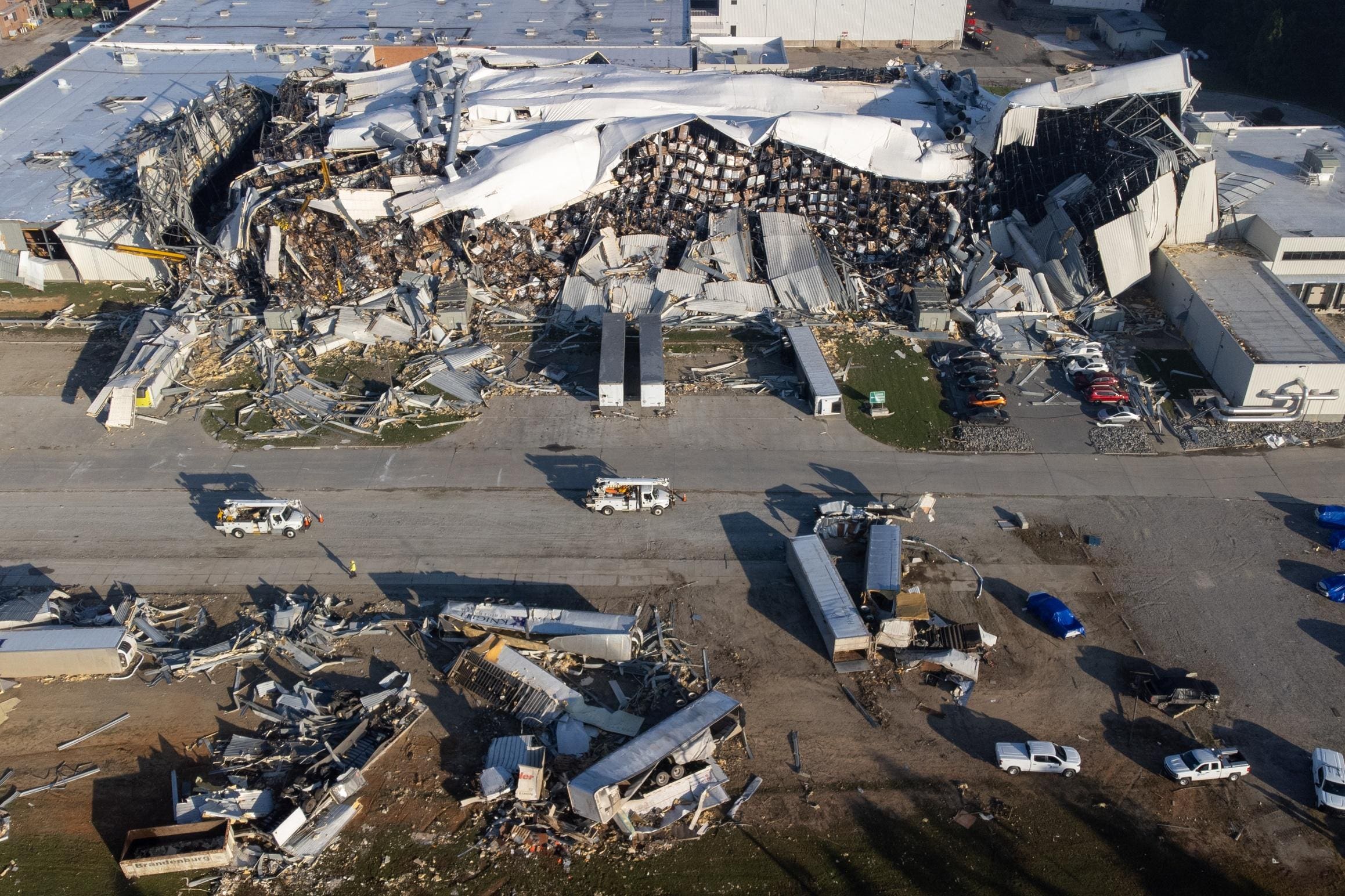Tornado Damages Pfizer Plant In North Carolina, Conspiracy Theories Swirl

Talk about twisting around what happened with a twister. On Wednesday, a tornado hit and heavily damaged Pfizer’s plant in Rocky Mount, North Carolina. Since this facility produces around 25% of all their sterile injectable products for U.S. hospitals, this may mean yet more product shortages in this country. But there have been no shortage of, guess what, conspiracy theories and misinformation swirling around this event since.
The tornado didn’t hit just the Pfizer plant. It also affected a number of other houses and properties including a daycare center, as the following CBS 17 news segment reported:
Fortunately, there didn’t seem to be any serious injuries reported. Once the winds died down, the affected neighborhoods began cleaning up the mess left behind.
But there was still a lot of spinning happening on social media—spinning as in tossing out claims about what really occurred in North Carolina. One conspiracy theory was that this wasn’t even a natural event, and it was instead a human-planned event via some type of weather manipulation. For example, a July 19 post on Instagram posted a video of the resulting destruction and said, “Hypothetically… if ‘they’ have the ability to manipulate frequency a la DARPA and HAARP to control the weather, and *hypothetically* if the good guys exist, do you believe that those good guys have the same abilities as them? If the bad guys can seed clouds, can the good guys create tornados?” Umm, what? What’s with the “hypothetically” with the asterisks around it? And who exactly are “they”?
If you are wondering why “they” would even want to plan a tornado, this post seemed to offer an answer in the form of a question, even thought this wasn’t the set of Jeopardy! The post asked, “Is this just an insurance claim for big pharma?”
Pictured here are the remains of a home from the tornado striking Dortches, North Carolina. (Photo … [+]
Getty Images
OK, let’s get this straight. “They,” whoever “they” may be, went through all the trouble of creating a tornado and causing all that destruction—including to a daycare center—just to get some kind of insurance claim? Is it even humanly possible to create a tornado of that size, one that reached an Enhanced Fujita Scale (EF) 3 with winds of up to 150 mph? After all, “they” ain’t Storm, you know that character from the X-Men, who by the way is fictional. You may be able to create a little tornado in your toilet. But that’s not the same as creating a tornado like the one seen in North Carolina.
Others asserted that this Pfizer plant was actually a Covid-19 vaccine warehouse—because you figured that someone would try to work Covid-19 vaccines into the narrative somehow. For example, on Twitter, Erin Elizabeth—who has in her bio “NYTimes & WashPo call me a conspiracy theorist”— posted the following claim: “BREAKING: A Pfizer Warehouse that was stocked with COVID-19 vaccines was just destroyed by a tornado in Rocky Mountain, North Carolina.”
There was one itty bitty rocky mountain of a problem with this claim, though. In her tweet, Elizabeth—who has been identified by Center for Countering Digital Hate as one of the twelve leading online anti-vaxxers, known as the “The Disinformation Dozen”—provided no source to support such an assertion. Both Tom Norton for Newsweek and Angelo Fichera for the AP ended up debunking Elizabeth’s claim, reporting that this was not a storage facility for Covid-19 vaccines but instead was a manufacturing plant for anesthetics and anti-infectives to treat things like fungal infections.
Nevertheless, if you look at the responses to Elizabeth’s tweet, you’ll find a whirlwind of claims. Some even tried to break wind, so to speak, by asserting that rather than a tornado, the thing that hit Pfizer was really some kind of energy weapon. And why would such an energy weapon be pointed at the Pfizer plant. To destroy the “evidence,” of course. Or at least that’s what one of these anonymous social media accounts were pushing.
While the tornado damage seemed to lead to a number of unreal claims, it may lead to some real problems. With Pfizer holding a significant market share of the sterile injectable products for U.S. hospitals, the lost stock could result in a shortage of such products. This further highlights what’s been a recurring problem throughout the pandemic, heavy dependence and potentially overdependence on one or just a few manufacturers. Accidents and acts of nature do happen. Product supply chains, especially medical product supply chains, need to have a diverse enough set of suppliers so that when accidents or acts of nature happen, there is enough redundancy in the system to maintain enough supply. Otherwise, this could leave a lot of patients and consumers blowing in the wind.


